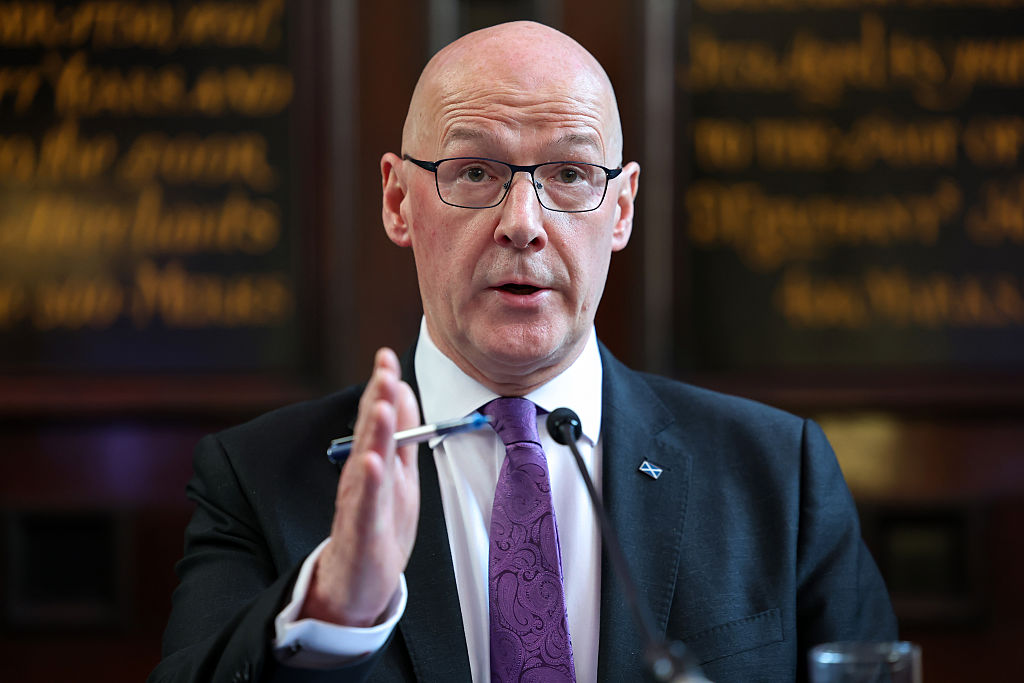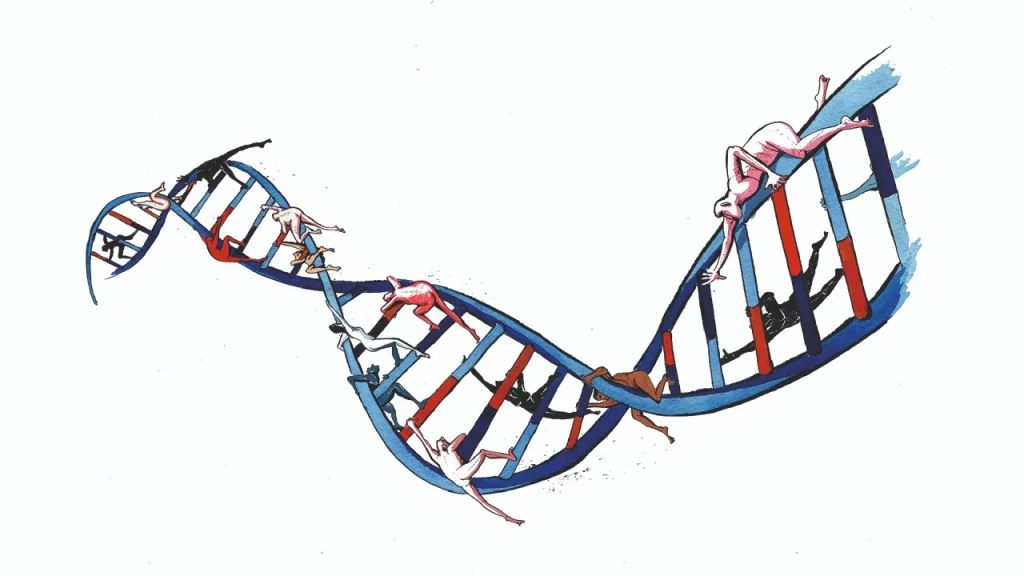John Swinney’s cross-party civic gathering – or ‘anti-Reform summit’ – met in Glasgow on Wednesday, with political party leaders from across Holyrood prepared to discuss how to rid Scotland of the hard right. Yet what began as a ‘Democratic Resilience Summit’ rather backfired for those politicians keen to push back against Reform UK’s surge in Scotland – as it turned into a chance for Nigel Farage’s party to enjoy free publicity.
Some 50 organisations from across civic society – including religious and third sector groups as well as every Holyrood party leader except Russell Findlay of the Tories – met in the centre of Glasgow to agonise over how to improve the lot of ordinary Scots. Meanwhile, in his usual media-savvy way, Farage was on BBC Radio Scotland telling those same ordinary Scots he had ‘the great and the good of Scottish politics’ running scared.
Swinney’s aim for the event was to ‘tackle causes undermining shared values in Scotland’ – yet the issue of extremism from the left was entirely absent.
And he is right. Right-wing and left-wing politics have shaped the political landscape in the UK over the past decade – despite parties such as Ukip or the Brexit party or Jeremy Corbyn’s Labour lot unable to make headway at any general election. Scotland’s next Holyrood election is just over 12 months away and political leaders north of the border are monitoring the projected outcome of England’s local elections intensely. Council ballots in Scotland have shown all parties losing votes to Reform: Labour, the SNP and even the Scottish Greens have been stripped of votes.
The most significant test of the electoral temperature will be the Hamilton, Larkhall and Stonehouse by-election in June. Reform UK has now announced its candidate, as the Spectator revealed on Wednesday – Ross Lambie, a Tory defector – and is privately confident of a strong third place finish. If they pull it off, this will dismay Scotland’s political leaders. But Reform still has real work to do in Scotland to persuade voters they are truly worth our time.
Tackling division and dissatisfaction were the themes of the day but there was no explicit mention of Reform itself or a specific naming of the political forces dividing the Scottish public. Outside Swinney’s event, a tiny band of protestors holding ‘mass deportation now’ signs and demonstrators wearing t-shirts bearing the slogan ‘not far right’ tried and failed to cause disruption. Inside was a worthy and well-meaning discussion of how Scotland’s mainstream political parties might tackle the swell of dissent against Scotland’s mainstream political forces that has caused polling figures to suggest as many as a dozen Reform MSPs could change the shape of Holyrood following the 2026 election.
Swinney’s stated aim for the event was to ‘tackle the root causes undermining shared values in Scotland’. The undertone of the first minister’s message was that all political parties should dial down their rhetoric and speak in more collaborative tones – or be sorry. One delegate referred to an attack being made on ‘Scotland’s wholesomeness’. And yet the issue of extremism from the left was entirely absent, despite this week the Scottish Greens MSP Maggie Chapman accusing the Supreme Court of ‘bigotry, prejudice and hatred’ following last week’s judgement on the legal definition of sex.
So what next? The common theme of the submissions from each represented group was that they could do impressive work in tackling the underlying causes of voter dissatisfaction if only they had additional resources, such as diverting more public cash to the cause. But beyond that, it is unclear quite what else the summit achieved.
The groups present were asked to sign a declaration on ‘strengthening and protecting democracy in Scotland’ and commit to a ‘collective response’ to mapping a way forward for Scotland. ‘A pledge? The right will be terrified,’ one sceptical Labour insider scoffed. And they’re right: talk and pledges won’t allay voter concerns. If Scotland’s larger parties don’t learn how to better connect with the public, Reform will no longer be a spectre but a visceral presence indeed.







Comments